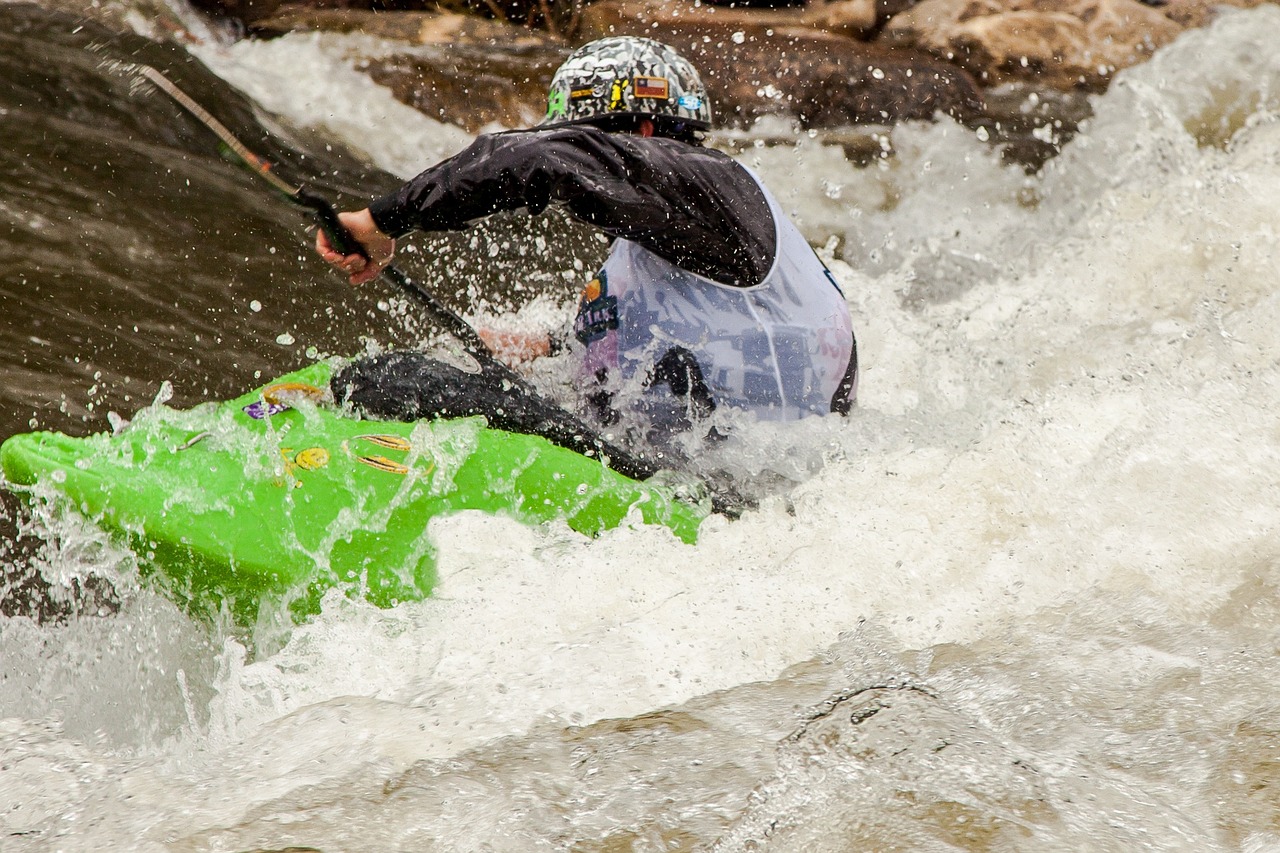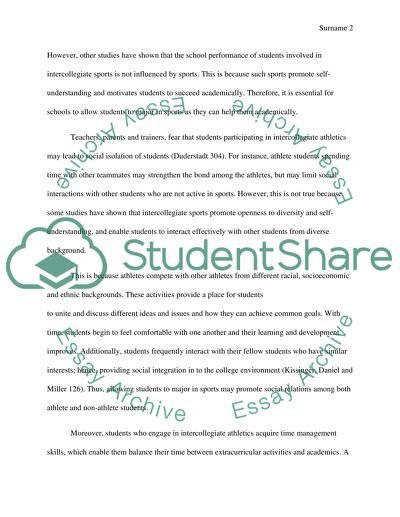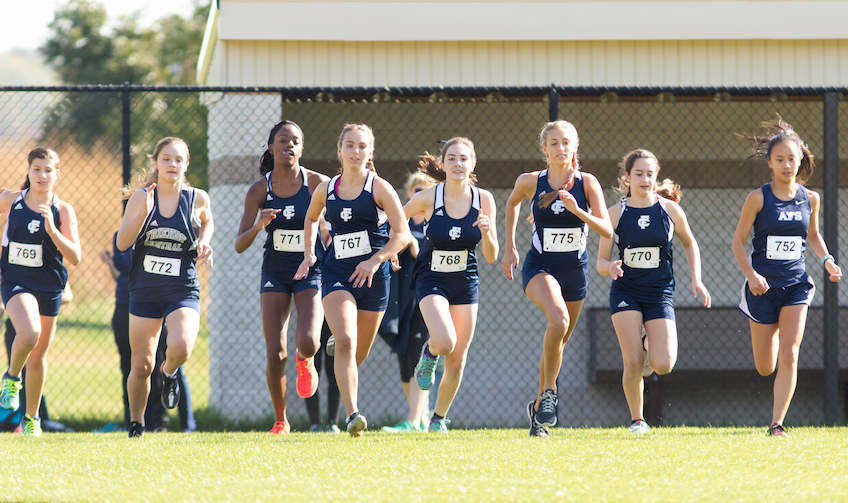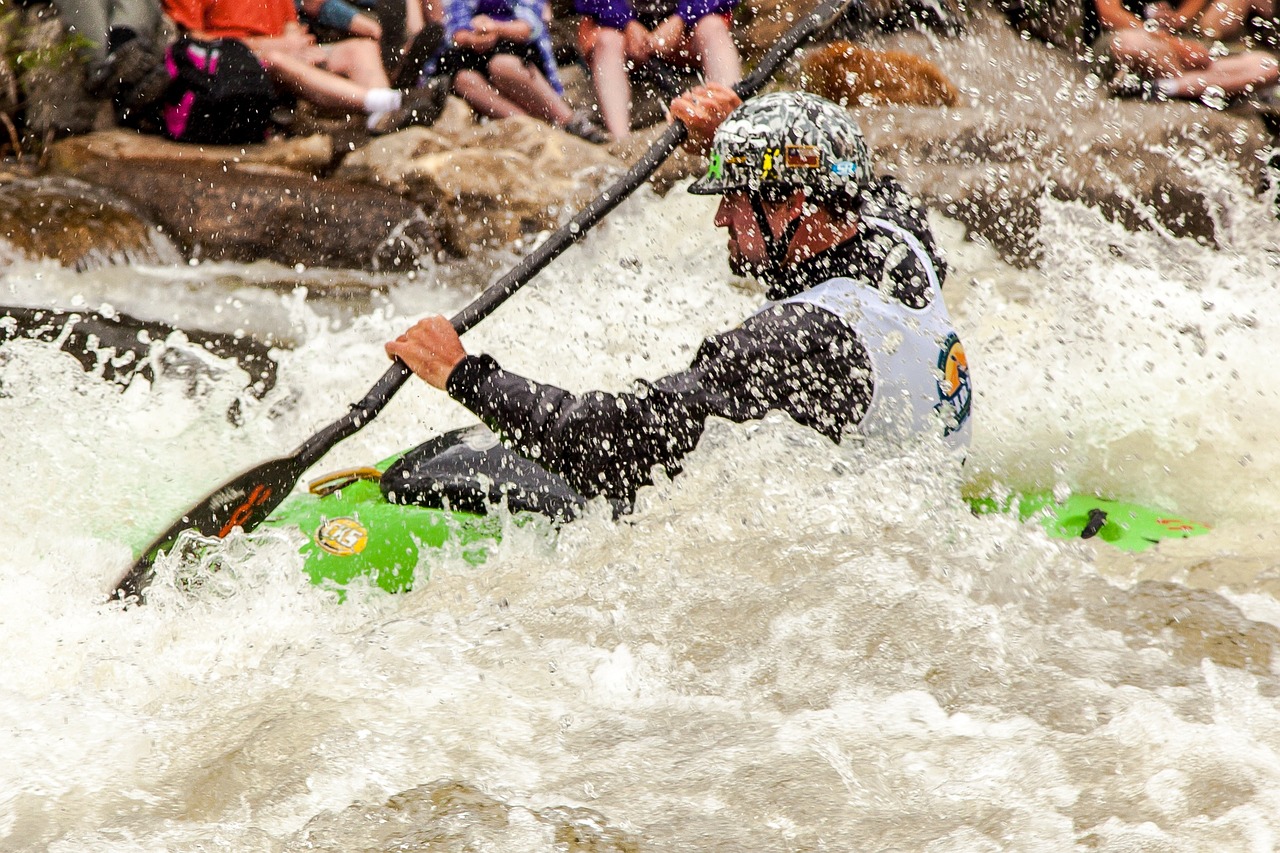Introduction
The intersection of sports and education has long been a topic of discussion, often centered on the balance between academic pursuits and athletic endeavors. For student-athletes, this juggling act can be both challenging and rewarding. In this article, we explore the significance of sports in education, the benefits it offers, and the strategies to maintain a harmonious equilibrium between the classroom and the playing field.
The intersection of sports and education is a dynamic and multifaceted arena that continually evolves, presenting both challenges and opportunities for student-athletes. This delicate balance between academic commitments and athletic pursuits not only shapes the lives of young individuals but also molds their character and prepares them for the future. Let’s delve deeper into the profound significance of sports in education, the valuable benefits it bestows, and the strategies that empower student-athletes to maintain a harmonious equilibrium between their classroom studies and their athletic passions:
Holistic Development: Sports in education foster holistic development. Beyond classroom learning, student-athletes acquire crucial life skills such as time management, discipline, teamwork, and resilience. These qualities are instrumental in both academic and athletic settings and serve as a strong foundation for future success.
Physical Health and Wellness: Regular participation in sports promotes physical health and well-being. Student-athletes are more likely to lead active lifestyles, reducing the risk of lifestyle-related health issues. They also learn the importance of nutrition, rest, and recovery, which are essential aspects of overall wellness.
Mental Resilience: The challenges of balancing academics and athletics teach mental resilience. Student-athletes develop the ability to handle pressure, setbacks, and high expectations. This mental toughness extends beyond sports and equips them to navigate life’s challenges with confidence.
Time Management: Juggling practices, games, and competitions with class schedules requires effective time management. Student-athletes become adept at prioritizing tasks, setting goals, and efficiently utilizing their time—a skill that serves them well throughout their academic and professional careers.
Scholarship Opportunities: For many student-athletes, sports open doors to educational opportunities they might not have otherwise. Athletic scholarships provide access to higher education, allowing them to pursue their academic goals while continuing to excel in their chosen sports.
Inclusivity and Diversity: Sports in education promote inclusivity and diversity. Student-athletes often interact with peers from various backgrounds, fostering cultural understanding and breaking down barriers. This exposure to diversity enriches their educational experience.
Community Engagement: Sports build a sense of community and school spirit. Student-athletes become ambassadors for their schools, fostering a sense of pride and unity among students, alumni, and the broader community.
Role Models and Leadership: Student-athletes frequently serve as role models and leaders within their schools. They inspire their peers to excel academically and athletically and often engage in community service and mentorship activities.
Networking Opportunities: The world of sports provides unique networking opportunities. Student-athletes may connect with coaches, mentors, and professionals who can offer guidance and support for their future careers.
Long-Term Success: The lessons learned through sports in education often lead to long-term success. Many student-athletes go on to become accomplished professionals, using the skills and values they acquired through their athletic experiences to excel in their chosen fields.
In conclusion, the interplay between sports and education is a rich and transformative journey for student-athletes. It goes beyond the balancing act of academic and athletic commitments; it shapes individuals into well-rounded, resilient, and accomplished individuals. The significance of sports in education lies not only in the immediate benefits but also in the lifelong impact it has on character, values, and future success. By embracing this intersection and employing effective strategies, student-athletes can navigate their educational and athletic pursuits with grace and purpose, setting the stage for a promising future.
To expand your knowledge on this subject, make sure to read on at this location: Internal Challenges Affecting Academic Performance of Student …
Participation in sports brings a multitude of benefits to students that extend beyond the physical aspect. Sports foster discipline, teamwork, time management, and resilience. They instill values like dedication, goal-setting, and a strong work ethic. These attributes are not only valuable on the playing field but also in the classroom and throughout life.
Participation in sports, often regarded as a cornerstone of a well-rounded education, offers a plethora of advantages that ripple throughout a student’s life. Beyond the physical health benefits, sports act as a crucible for character development and personal growth.
1. Discipline: The Backbone of Success
One of the most significant gifts that sports bestow upon students is discipline. Athletes learn the importance of adhering to a schedule, attending practices, and following a training regimen. This discipline instills the habit of punctuality and responsibility, qualities that are equally vital in academic pursuits. Just as an athlete shows up for practice, they also learn to meet deadlines, attend classes, and complete assignments promptly.
2. Teamwork: Building Collaborative Skills
Team sports, in particular, teach invaluable lessons in teamwork and collaboration. Athletes understand the dynamics of working together to achieve a common goal. This spirit of cooperation extends beyond the playing field and into group projects, classroom discussions, and future workplace endeavors. The ability to collaborate effectively becomes a cornerstone of success in academic and professional life.
3. Time Management: A Life Skill
Balancing academics and sports necessitates proficient time management. Student-athletes must allocate their time wisely to excel in both domains. This skill becomes a life-long asset, helping individuals strike a balance between work and personal life, meet commitments, and make the most of their available hours. In an age marked by constant distractions, the ability to manage time efficiently is a rare and valuable skill.
4. Resilience: Overcoming Adversity
In the world of sports, victory and defeat often go hand in hand. Athletes experience both the highs of success and the lows of defeat. It’s in these moments of adversity that resilience is forged. Learning to bounce back from losses, adapt to challenges, and maintain focus amid setbacks equips students with emotional fortitude that is invaluable in facing academic challenges and life’s trials.
5. Dedication, Goal-Setting, and Work Ethic: Keys to Achievement
Sports cultivate qualities like dedication, goal-setting, and a strong work ethic. Athletes set specific goals, whether it’s improving their time in a race, mastering a new skill, or achieving a personal best. This ability to set objectives, devise a plan, and work diligently toward them translates seamlessly into academic life. Students learn that sustained effort and determination are the cornerstones of achievement, be it in the context of a sport or the classroom.
In essence, participation in sports molds students into well-rounded individuals armed with a toolkit of essential life skills. These attributes are not confined to the boundaries of a playing field or a gymnasium; they permeate every aspect of a student’s life, enhancing their academic pursuits, personal growth, and future prospects. The values instilled through sports lay a strong foundation for success, underlining the enduring importance of sports in education.
Should you desire more in-depth information, it’s available for your perusal on this page: Extracurricular Participation And Student Engagement

Contrary to the notion that sports can hinder academic performance, numerous studies suggest a positive correlation between participation in sports and academic success. Engaging in sports can improve concentration, boost self-confidence, and enhance cognitive skills. The discipline required to excel in both academics and athletics often carries over, helping student-athletes excel in their studies.
Contrary to the notion that sports can hinder academic performance, a growing body of research underscores the symbiotic relationship between athletic engagement and academic success. Here’s a deeper exploration of how participation in sports not only complements but also enhances academic achievement:
1. Improved Concentration: Sports demand focus and concentration, which are skills that readily transfer to academic pursuits. Athletes often develop the ability to tune out distractions and maintain a high level of concentration, benefiting them in the classroom. This enhanced focus can lead to better note-taking, improved information retention, and a heightened ability to stay engaged during lessons.
2. Enhanced Time Management: Student-athletes become adept at managing their time effectively. Balancing rigorous training schedules, competitions, and academic responsibilities necessitates strong time management skills. As a result, these students often excel in prioritizing tasks and meeting deadlines, a valuable trait for academic success.
3. Boosted Self-Confidence: Achieving success in sports can significantly boost self-confidence. When students experience victory and personal growth through athletics, they carry this sense of accomplishment into their academic endeavors. They approach challenges with greater self-assurance, believing in their ability to overcome obstacles.
4. Cognitive Benefits: Engaging in physical activity has been linked to cognitive benefits. Regular exercise is associated with improved memory, problem-solving skills, and creativity. Athletes often experience enhanced cognitive function, which can lead to better academic performance, particularly in subjects that require critical thinking and creativity.
5. Stress Reduction: Sports serve as a healthy outlet for stress. Physical activity triggers the release of endorphins, reducing stress and promoting mental well-being. This stress relief can have a positive impact on academic performance by enabling students to manage academic pressures more effectively.
6. Goal-Oriented Mindset: Athletes are accustomed to setting and working towards goals in their sports endeavors. This goal-oriented mindset translates seamlessly to academic pursuits. Students set academic goals, track their progress, and remain motivated to achieve their objectives.
7. Teamwork and Social Skills: Many sports involve teamwork and collaboration. Student-athletes develop strong interpersonal skills, which can improve their ability to work effectively in group projects and foster positive relationships with peers and teachers.
8. Discipline and Work Ethic: The discipline and work ethic instilled by sports are invaluable assets in academics. Student-athletes understand the importance of consistent effort, practice, and improvement. This dedication often results in higher academic performance as they approach their studies with the same diligence.
9. Supportive Communities: Athletic teams often provide a supportive community of like-minded individuals. This sense of belonging can reduce feelings of isolation and stress, creating a conducive environment for academic success.
10. Scholarships and Opportunities: Excelling in sports can open doors to academic opportunities, including scholarships and admissions to prestigious educational institutions. This incentive encourages student-athletes to maintain strong academic performance to secure their future prospects.
In conclusion, far from being a hindrance, sports can be a powerful catalyst for academic success. The skills, attributes, and mindset cultivated through athletic participation contribute positively to an individual’s educational journey. Student-athletes not only excel in their chosen sports but also thrive academically, showcasing the remarkable synergy between sports and scholarly achievement. The holistic development fostered by a balanced commitment to both sports and academics is a testament to the enriching and multifaceted benefits of the student-athlete experience.
You can also read more about this here: How to Balance Sports and Studies as a Student-Athlete – Azusa …

Balancing sports and academics necessitates effective time management and prioritization skills. Student-athletes often have demanding schedules, with practices, games, and competitions to attend alongside their academic coursework. Learning to allocate time wisely and focus on priorities is a valuable life skill that can benefit students throughout their educational journey and into their careers.
nullLooking for more insights? You’ll find them right here in our extended coverage: How to Balance Sports and Studies as a Student-Athlete – Azusa …

Coaches and mentors play a crucial role in guiding student-athletes toward success in both arenas. They provide guidance, support, and encouragement, helping students navigate the challenges of balancing academics and sports. A strong mentorship can also foster personal development, instilling values such as perseverance and teamwork.
The influence of coaches and mentors in the lives of student-athletes is profound and far-reaching, extending well beyond the realms of sports and academics. These guiding figures serve as beacons of inspiration and sources of wisdom, nurturing not just athletic prowess but also the qualities that shape character and future success:
1. Academic Excellence: Coaches and mentors are more than just experts in sports; they are advocates for academic excellence. They understand the importance of balancing rigorous training with a commitment to education. They emphasize the value of time management and discipline, skills that are indispensable not only for sports but also for academic pursuits.
2. Emotional Support: The journey of a student-athlete is not without its share of highs and lows, triumphs, and setbacks. Coaches and mentors provide a crucial pillar of emotional support. They lend a sympathetic ear, offering guidance and encouragement during moments of doubt and frustration. This emotional resilience is invaluable in both the sports arena and life’s challenges.
3. Values and Ethics: Beyond the strategies and tactics of the game, coaches and mentors impart values and ethics that endure long after the final whistle. Lessons about integrity, sportsmanship, and fair play resonate in every aspect of a student-athlete’s life. These principles become the foundation of their character.
4. Leadership and Teamwork: Athletics are fertile ground for cultivating leadership skills and the ability to work effectively within a team. Coaches and mentors instill the importance of leadership by example, teaching student-athletes how to lead with humility and inspire others. They also emphasize teamwork, fostering the understanding that individual success is intertwined with the success of the team.
5. Perseverance and Resilience: The sports arena is a testing ground for perseverance and resilience. Coaches and mentors encourage student-athletes to confront challenges head-on, teaching them not to be disheartened by failure but rather to view it as a stepping stone to improvement. This resilience becomes a life skill, enabling them to overcome obstacles in academics and beyond.
6. Goal Setting and Achievement: Coaches and mentors guide student-athletes in setting clear, attainable goals both in sports and academics. They teach the importance of setting targets, working diligently toward them, and experiencing the satisfaction of achievement. These goal-setting skills are transferable, empowering students to excel in their studies and future careers.
7. Life Lessons and Legacy: Coaches and mentors have a lasting impact on the lives of student-athletes. The lessons imparted go far beyond sports and academics; they shape the individuals these students become. The influence of a strong mentor is often felt for generations, as students pass on the wisdom and values they’ve acquired to others.
In essence, coaches and mentors are not just guides in the realm of sports and academics; they are architects of character and builders of future leaders. The profound influence they exert extends into every facet of a student-athlete’s life, molding them into individuals who possess not only the skills and knowledge to succeed but also the values and resilience to thrive in an ever-changing world. In this dynamic partnership, coaches and mentors illuminate the path to success, helping student-athletes navigate the intricacies of life’s dual arenas with confidence and purpose.
Should you desire more in-depth information, it’s available for your perusal on this page: The Indispensable Role of Christian Mentors in High School Athletics

For many student-athletes, sports can open doors to higher education through scholarships and opportunities that might not otherwise be accessible. Colleges and universities often offer athletic scholarships, enabling talented athletes to pursue their academic goals while continuing to excel in their chosen sports.
The intersection of academics and athletics has the potential to be a life-changing opportunity for student-athletes. Sports not only enhance physical fitness and foster a competitive spirit but also serve as a pathway to higher education through scholarships and unique opportunities. Here’s an in-depth look at how sports can open doors to higher education for aspiring student-athletes:
Athletic Scholarships: Many colleges and universities, especially in the United States, offer athletic scholarships to talented athletes. These scholarships cover various expenses, including tuition, room and board, and textbooks. They provide access to higher education that might have otherwise been financially out of reach.
Academic and Athletic Balance: Student-athletes learn valuable time management and discipline skills as they balance their academic commitments with rigorous training and competition schedules. This balance prepares them for the challenges of higher education and beyond.
Access to World-Class Coaching: Being part of collegiate sports programs often means access to top-tier coaches and training facilities. Student-athletes can develop their skills to the fullest potential under the guidance of experienced coaches.
Networking Opportunities: Participation in collegiate sports exposes student-athletes to a wide network of peers, alumni, and industry professionals. These connections can be instrumental in future career endeavors.
Character Development: Sports instill important life skills such as teamwork, leadership, perseverance, and resilience. These qualities not only contribute to success in academics and athletics but also in personal and professional life.
Leadership Roles: Student-athletes often assume leadership roles within their teams, fostering qualities like communication and problem-solving. These leadership experiences are highly regarded by universities and potential employers.
Community Engagement: Many student-athletes engage in community service and outreach activities as part of their athletic programs. This commitment to giving back enhances their overall character and strengthens their college applications.
Educational Opportunities: Some student-athletes may receive opportunities to attend prestigious institutions that they may not have considered otherwise. These institutions offer a unique blend of academic excellence and competitive sports programs.
Athletic Development: Collegiate sports provide an environment for athletes to reach their peak potential. They can compete at higher levels and refine their skills, which can lead to professional opportunities in their respective sports.
Graduate Education: Some student-athletes use their athletic scholarships as a stepping stone to graduate education. They pursue advanced degrees, benefiting from the foundation of discipline and commitment instilled through their sports journey.
Life After Sports: While a career in professional sports may be the dream for some, the reality is that few athletes make it to that level. Higher education ensures that student-athletes have a strong academic foundation and a wide range of career options once their athletic careers conclude.
Global Opportunities: For international student-athletes, sports scholarships can offer a chance to study abroad and experience a new culture while continuing to compete in their chosen sport.
In conclusion, sports serve as a dynamic gateway to higher education, empowering student-athletes to pursue their academic aspirations alongside their athletic pursuits. Athletic scholarships and the holistic development that sports offer can transform the lives of these individuals, providing them with opportunities, skills, and experiences that extend far beyond the playing field. For many, the journey through sports leads to a fulfilling academic and professional future, showcasing the enduring value of the symbiotic relationship between sports and education.
You can also read more about this here: Stress in Academic and Athletic Performance in … – Frontiers

Finding the right balance between sports and academics is key to a successful student-athlete experience. This balance varies from person to person, and it may require trial and error to discover what works best. Effective communication with teachers, coaches, and parents is essential to ensure that student-athletes receive the necessary support.
Balancing the demands of both academics and sports is a delicate yet rewarding journey for student-athletes. This equilibrium is not a one-size-fits-all solution; instead, it’s a personal exploration that involves self-awareness, time management, and effective communication. Let’s delve into the significance of finding this balance and the strategies that can help student-athletes thrive in both realms:
1. Individualized Balance: Each student-athlete’s balance is unique, influenced by factors like the intensity of their sport, academic workload, and personal goals. It’s essential to recognize that there is no universal formula for success; the key lies in discovering what works best for you.
2. Time Management: Time management is a crucial skill for student-athletes. Creating structured schedules that allocate dedicated time for academics, training, rest, and relaxation can help optimize productivity and minimize stress. Tools such as planners, digital calendars, and task lists can be valuable allies in this endeavor.
3. Set Priorities: Determine your academic and athletic priorities. While both are important, there may be times when one takes precedence over the other. Clarifying your short-term and long-term goals can guide decision-making when conflicts arise.
4. Effective Communication: Open and transparent communication with teachers, coaches, and parents is vital. Inform educators and coaches of your commitments and schedule so they can provide necessary accommodations and support. Seek advice and guidance when needed, as these mentors can offer valuable insights and solutions.
5. Utilize Resources: Many schools offer academic support services tailored to student-athletes. Take advantage of tutoring, study groups, and academic advisors who understand the unique challenges you face and can provide guidance on managing academic responsibilities.
6. Self-Care: Prioritize self-care to maintain physical and mental well-being. Quality sleep, a balanced diet, and regular exercise are essential for sustaining energy levels and concentration. Additionally, relaxation techniques, such as meditation or mindfulness, can help manage stress.
7. Flexibility and Adaptability: Be prepared to adapt to changing circumstances. Injuries, unexpected academic challenges, and scheduling changes are part of the student-athlete experience. Maintaining a flexible mindset allows you to navigate these challenges more effectively.
8. Learn from Experience: Finding the right balance often involves a process of trial and error. Be patient with yourself and learn from your experiences. Reflect on what works and what doesn’t, and make adjustments accordingly.
9. Support Network: Lean on your support network, including friends, family, teammates, and fellow student-athletes. Sharing experiences, challenges, and strategies with others who understand your journey can provide valuable emotional support and encouragement.
10. Long-Term Perspective: Keep your long-term goals in mind. While the immediate demands of sports and academics may feel overwhelming at times, remember that both are integral to your development. The skills you acquire as a student-athlete, including discipline, time management, and perseverance, will serve you well in future endeavors.
In summary, the art of balancing academics and sports is a dynamic and evolving process. It requires self-awareness, effective communication, and the willingness to adapt to changing circumstances. By acknowledging the uniqueness of your journey and proactively managing your commitments, you can create a fulfilling and successful student-athlete experience. Ultimately, achieving this balance not only enhances your academic and athletic performance but also fosters personal growth and resilience that will serve you well throughout your life.
Looking for more insights? You’ll find them right here in our extended coverage: Importance of Balancing Sports and Academics – The Sports School

While a select few may pursue professional athletic careers, the majority of student-athletes will transition into other fields after their playing days are over. This makes it essential to prioritize education and career planning alongside sports. The skills acquired through sports, such as leadership, teamwork, and resilience, are highly transferable and valuable in the job market.
nullFor additional details, consider exploring the related content available here Division II Facts and Figures – NCAA.org

a fulfilling education and a thriving athletic journey. The fusion of sports and education can lead to holistic personal development and future success, making the pursuit of excellence both on and off the field a truly rewarding endeavor.
The intersection of sports and education is a powerful confluence that has the potential to shape individuals into well-rounded, successful, and resilient human beings. It represents a holistic approach to personal development, emphasizing not only physical prowess but also intellectual growth and character formation.
In the realm of sports, athletes learn essential life skills such as discipline, perseverance, teamwork, and time management. These qualities, honed on the field, seamlessly translate into the classroom and, ultimately, into the professional world. Athletes are often adept at setting goals, working diligently to achieve them, and adapting to changing circumstances, all of which are valuable attributes in academic pursuits and beyond.
Conversely, education equips individuals with critical thinking skills, knowledge, and a broad worldview that can enhance their performance in sports. The ability to analyze, strategize, and adapt is not limited to the classroom but extends to the sports arena, where athletes make split-second decisions, assess opponents’ strategies, and adjust their game plans accordingly.
Furthermore, the fusion of sports and education instills a strong sense of responsibility and integrity. Athletes learn the importance of fair play, respect for rules, and ethical conduct, values that extend to all aspects of life. The pursuit of excellence, whether in academics or athletics, is underpinned by a commitment to ethical behavior and upholding one’s personal and professional integrity.
A fulfilling education and a thriving athletic journey complement each other, creating a synergy that fosters personal growth. The discipline and dedication required to excel in sports can instill a passion for continuous learning and improvement in other areas of life. Similarly, the intellectual curiosity cultivated through education can enhance an athlete’s understanding of their sport, leading to more strategic and thoughtful performance.
This holistic approach to personal development not only enriches the individual but also benefits society as a whole. Well-rounded individuals who excel in both their athletic and academic pursuits often become role models, inspiring others to follow suit. They demonstrate that the pursuit of excellence is not confined to one domain but is a lifelong journey encompassing various aspects of personal and professional life.
In conclusion, the fusion of sports and education is a powerful recipe for holistic personal development and future success. It equips individuals with a diverse skill set, a strong ethical foundation, and a passion for continuous improvement. The pursuit of excellence, both on and off the field, becomes a fulfilling and rewarding endeavor, setting the stage for a bright and promising future.
For additional details, consider exploring the related content available here sec_E_SB_ELA_G8.pdf

More links
For a comprehensive look at this subject, we invite you to read more on this dedicated page: For College Athletes, Concern About Balancing Sports, Academics
